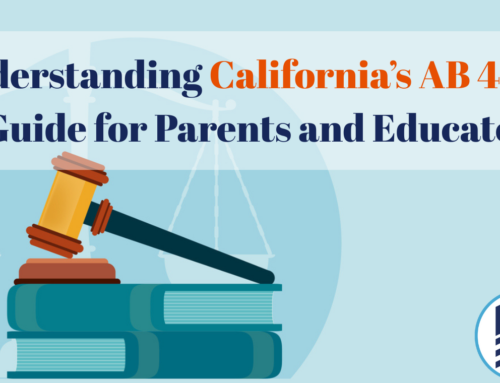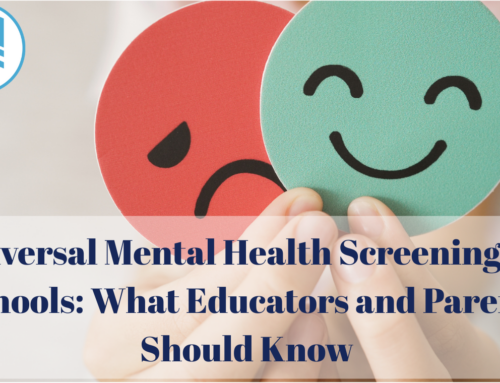
A good mom is an invested mom. An invested mom cares for her child as no one else can, and she understands that her influence is the number one thing that will shape that child on every level.
From birth, in a healthy scenario, mothers and babies interact. Interaction is the only thing that will form a strong attachment between them. Mothers instinctively monitor their babies’ behavior and respond to it. Three of the most basic ways loving moms respond to their babies are touch, eye contact, and dialogue. Take touch, for instance. In a February 2021 study “maternal social touch during mother-infant interactions was shown to affect infants’ subsequent behaviors toward both people and objects around them. Infants who engaged in more frequent contact with their mother showed a greater decrease in evasive behaviors toward a stranger as well as greater facilitation of object exploration…”
At the infant stage, mothers are already teaching their babies all sorts of social lessons! Yet is a new mother taught how to touch, talk, and smile? No. If you’re a mom, or you know a mom, it’s easy to see that much of the interaction a mother has with her newborn is purely instinctive.
A mother’s initial instinct gives her the tools she needs to teach her child throughout life. From the start, she’s teaching her child to trust her, love her, and engage with her, but that doesn’t stop when infanthood ends. As her child becomes a toddler, she begins to teach her child concrete subjects such as words, shapes, colors, how to walk, and how to obey. Consciously or unconsciously, she continues to teach her children throughout their lives together.
We can learn so much from moms about teaching and the tips and tricks they use every day.
The 10 Secrets Moms Know
1. Each Child Is Different
It’s often debated whether to use a one-size-fits-all approach in education or personalize lessons to fit each child’s needs. Many educators want to tailor their students’ lessons to individual needs as more research is done on how children learn.
Mothers already do this instinctively. Moms know their children inside-out. When a child is struggling, mothers slow things down, take it a step at a time and work closely with the child to finish the puzzle, work out the math problem, or sound out the words in a book. If their child is a visual learner, a mom will allow him or her to sit nearby and look at the pictures in a book. If a mom recognizes that a child learns best by listening, she’ll allow her child to have a little space to roam while she reads aloud.
2. Flexibility Is a Superpower
Similarly, moms are flexible. Have you ever watched a mom respond to a surprise situation by dropping everything and fixing the problem? Maybe you’re a mom and you know how frustrating these interruptions can be. But a mom gets things done, in one way or another. Sometimes it’s a simple case of dropping what she’s doing, resolving a problem, and getting things back on track. Or maybe not. Maybe the baby won’t nap, the toddler is into mischief, and the older children are fighting. A day like that may call for a new game plan. Many moms know that sometimes you just have to quietly set aside the schedule and your own work and buy a pizza for dinner. Whatever the day throws at them, moms are flexible.
3. Play Is The Best Teacher
Mothers tend to use objects to teach through play. Picking up a toy to try and distract a fussy baby is a tactic most moms use all the time, especially when their children are under preschool age. As children grow older, mothers often illustrate principles of math and reading using things found around the house. Homeschool moms know that crafting is a great way to keep little hands busy as children paint pictures of the four seasons, or create the anatomy of a cell using pasta and beans. Moms know the importance of play!
4. Praise Helps Children Succeed
A well-timed bit of praise can go a long way. Children become more confident and independent if they receive consistent praise from people they love or respect. A mom who is intentional about praising will let her child know that he is special to her and she cares about his victories and failures. If you want children to know what behavior displeases you, a gentle correction will steer them in a different direction, but only praise can show them what kind of behavior you value in them.
5. When To Say No
It’s hard to say no, isn’t it? Especially when you’re tired. Sometimes it’s easier to give the child what she wants and snatch a few precious moments of time for yourself. Although the temptation overcomes us all at one time or another, mothers know that there’s always a time when a child’s wants get in the way of the greater good. Ice cream before dinner is usually not a good idea! Stand firm in your role as the authority and say no, hoping that someday they’ll see it the way you do.
6. Stories Are a Teaching Tool
Moms are great storytellers. Today, moms are at the helm of the modern read-aloud movement. And no wonder, since telling stories seems to be in their blood. Moms know that the funnier the story, the better it will stick with their child, whether that’s a hilarious story from her own childhood or a witty picture book. Stories encourage reflection, good behavior, and assurance that even when we make mistakes, we learn and grow. But best of all, stories help children see things from a different perspective and learn to empathize.
7. Live In The Present
Have you ever heard a new mother say, “I want to spend every moment enjoying my baby!” Even though it’s easy for a mom to get down on herself for not “living in the moment,” chances are she’s doing better at it than she believes. Invested mothers are in tune with their child’s needs, wants, and emotions. They naturally live moment-to-moment. They’re quick to respond to a need or a special moment in their children’s lives.
8. Collaboration Is Key
Mothers know they can’t do it all. Nor do they want to. It’s important for moms to teach their children responsibility and how to work with others. Maybe Mom is busy and tells her oldest child to take over a job she can’t do, such as watching the toddler or pouring drinks for the rest of the family. Or perhaps she sits down with a coloring page and asks if her child wants to help color. Be it work or play, having a common goal strengthens the relationship. And once the child is competent at the task, it goes twice as fast if they work together.
9. Communicate Clearly
Early on in a baby’s life, mothers communicate with their children. According to What To Expect, most infants can respond to their name by the time they’re five or six months old. This means they know from age six months that when someone calls their name, they’re wanted! This means that moms have the ability to make it clear what they want from their children very early on. A child can learn “don’t touch that” and “give Mama a hug!” with equal speed, thanks to Mom’s clear communication.
10. Teaching Goes Both Ways
While a mom is doing her best to teach her child everything she knows, she realizes she has a lot to learn. And who better to teach her than her own children? She knows there’s a big difference between bringing home a new baby and sending her teen off to college. There’s a lifetime of new knowledge and growth packed into those years. A good mom realizes that her parenting techniques will change as she learns to understand each of her children and what it means to be a mom.
What Moms Teach Us
We can learn so much from good moms. They are the people who know, instinctively, how to care for their children from birth. Moms are hardwired to be teachers. An invested, loving, and nurturing mom is the best person in the world to care for and teach her children.
Some mothers don’t recognize the gifts they have and would rather leave the teaching to others. But no one knows a child better than his mother! Those who are teachers may want to take a page (or many) from good, healthy mothers to become more competent in their work with children.
There is much to learn from moms and the secret teaching strategies they use every day.




